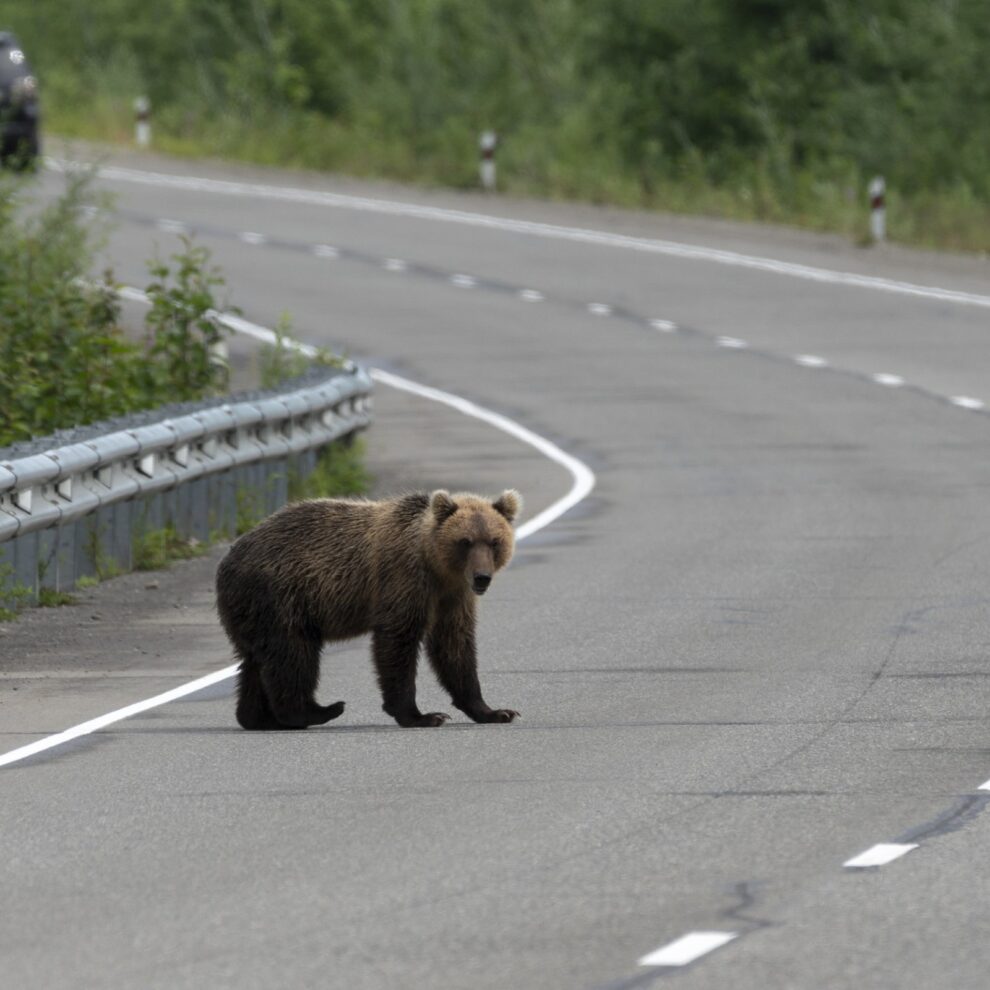The Environment Ministry is urging people planning to go to the mountains in this fall tourist season to take safety precautions against bears.
According to the ministry, bear-caused deaths and injuries have been increasing, with the number of such cases in April-July hitting a record high of 54. In the same period, bears were spotted in 7,967 cases, the second most in five years. But there is believed to be a substantial number of unreported cases.
In fall, bears eat a huge amount of acorns to prepare for winter hibernation.
“But acorn crops are poor this year, especially in the Tohoku region,” a ministry official in charge of wildlife management said.
“Casualties may spike if hungry bears come out of their mountain habitat to human settlements,” the official warned.
For those who are going into the mountains for, among other reasons, picking wild vegetables, it is necessary to take such precaution measures as carrying bear bells, speaking loudly and burning mosquito repellent coils, according to the ministry.
“If you encounter a bear, move slowly back without taking eyes off the animal,” the official stressed. “Never run or scream.”
“Please think about turning back when finding claw marks or feces,” the official added.
Meanwhile, so-called urban bears have been frequently spotted in such cities as Sapporo.
Growing up in forests near residential areas, urban bears are not afraid of human beings.
In August, the Hokkaido government announced that a large brown bear called OSO18 had eventually been shot to death after killing and injuring 66 cows from 2019 in the eastern part of the prefecture.
“But urban bears are more dangerous than OSO18, which was so cautious that it kept hiding in the woods, because they do attack humans,” another ministry official warned.
The ministry proposes a set of measures to prevent bears from appearing in urban areas, including eliminating bamboo bushes and other places where a bear can hide and not leaving harvested vegetables outside in fields.
Source : The Japan Times



























